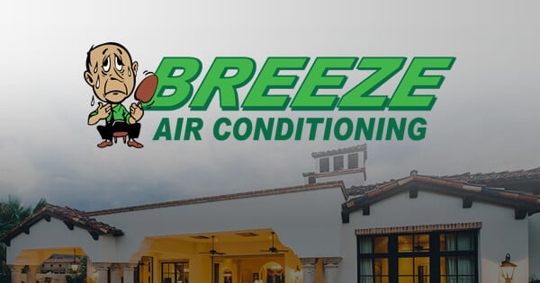You love the fact that your air conditioner keeps your home so comfortable during the hot summer months, but you have started noticing that it is building up ice on the refrigerant lines or possibly inside your condensing unit. Is this normal or does it indicate a problem, and what may be causing this to happen?
What Freezes Do to Your System
To understand why your AC unit freezes up, you first need to understand a little about how your air conditioner works. To create cool air, your system circulates refrigerant, which absorbs heat from the air and vents it outside. To achieve this, the unit must change the pressure in the system at the right time.
When the refrigerant’s pressure goes down, it makes it cold. The lower the pressure, the colder the refrigerant becomes. Likewise, when the pressure increases, the refrigerant becomes hot, allowing it to transfer the heat outside.
Your air conditioner freezes when there is a disruption in the regulation of the refrigerant. This disruption can be caused by low refrigerant or a mechanical malfunction.
Likewise, your system cannot absorb heat from the air if there is something causing an airflow restriction. If your AC unit has a freeze somewhere, it indicates a problem that needs solving before it causes significant damage.
Clogged Air Filters
Your air filters are extremely important to the proper functioning of your cooling system. If air was allowed to flow unfiltered, you would see significant dust and debris buildup throughout your unit. This buildup of debris will prevent air from flowing.
When your filters prevent air from flowing properly, the refrigerant does not warm up correctly. This extra-cold refrigerant then translates into freezes developing in the system. In addition to creating a freeze in the AC unit, clogged air filters will reduce the amount of air coming from your vents. It also adds tremendous strain to your system, leading to additional repair needs and a shorter service life.
Dirty Evaporator Coils
Even with clean air filters, some airborne contaminants may make their way into your system, either through leaks or the filter. These collect on the evaporator coil, causing it to restrict airflow and forming a type of insulation over the coil. Both the restriction and the insulating effect prevent the refrigerant from absorbing heat.
Dirty or Malfunctioning Circulating Fan
Your circulating fan is another component that collects airborne contaminants and needs regular cleaning. As it gets dirty, it reduces the vacuum created while it turns, drawing in less air through the filter.
The fan motor can also malfunction, usually when it is near burning out. When this happens, the fan will spin more slowly, which creates less airflow through your air conditioner.
All of this has the same effect as any other airflow restriction: not enough air moving over the evaporator coil. This lack of airflow keeps the refrigerant too cool, creating freezes at the evaporator coil.
Low Refrigerant or Refrigerant Leaks
In order to effectively regulate the refrigerant pressure, the system needs a certain amount circulating. When this drops too low, it prevents the compressor from creating the right pressure at the condensing coils. The compressor works extra hard to pressurize the coil, creating low pressure in the refrigerant lines and leading to a freeze.
The most common cause of low pressure in the system is a refrigerant leak. Even a small leak will make a big enough impact to lead to freeze-ups that can cause damage to your compressor and coils.
Dealing With System Freezes
As the saying goes, an ounce of prevention is worth a pound of cure, and that holds true with your air conditioner. If you can prevent the things that cause freezes, you will never have to deal with a frozen unit.
The most effective prevention is giving your system professional spring maintenance. During this maintenance, a technician cleans the evaporator coil and circulating fan and inspects your fan motor and air filter. They will also check the refrigerant level in your system to ensure that your AC unit is not leaking.
If you do happen to experience a freeze-up, turn off your air conditioner and give it time to thaw. While it is warming up, check your air filter to see if it is clogged. Once your system thaws, try turning it back on and listen to ensure that it engages properly.
If you notice that the compressor does not want to engage or you hear a rattling, screeching, humming, or screaming sound, turn the AC unit off. These noises, along with the previous freeze, indicate a significant problem that should be addressed by a professional technician.
People around Palm Desert have trusted Breeze Air Conditioning for air conditioning repair, installation, and maintenance for over 40 years. Our experts are also sought out for indoor air quality solutions and heating installation, maintenance, and repair. Give us a call to schedule your service appointment with one of our expert technicians today.
The post Why Do Air Conditioners Freeze Up? appeared first on Breeze Air Conditioning.

